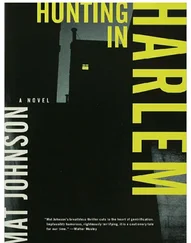After class, I go to his desk as he’s packing. “Kimet. How did you manage to—”
“My mom got custody,” he says before I can finish even the first sentence of my inquiry. His response is preprepared and packaged tight enough to compel me to avoid his baggage. “I’m really excited about the class, sir. I really dig your work. I read the comic. The landscape pencils you did of Germantown Avenue are amazing. The depth of perspective with the telephone poles — I got to learn how to do that. I’m hyped to work with you.”
He’s an exemplary young man, this Kimet. Passionate. Well spoken. Great eye for detail. I’m so impressed with that I don’t remember those pencils are not in print. Or online. Unless he attended a gallery show on King’s Road in Swansea six years ago, the only place he could have seen those illustrations was in my father’s house.
—
I was a boy that age once, and I know that 97.7 percent of their bodies are semen and the 2.8 percent is an incendiary device for spraying it. I don’t trust teenage males, particularly around teenage females, but still Kimet’s not the focus of my increasing anger.
I arrive at the tent while they’re still dancing. Sunita Habersham flips through the air, hugging her torso, chin tucked, those legs up and kicking and then landing down again, her thighs shaking along the way. On the final twirl, Sun collapses to a kneel, holds the pose for three seconds, then looks up at Tal and walks away as if this is so simple. It turns out it is for Tal. My daughter does the same move, but her thin legs go even higher. Her turns even quicker, the final collapse even more of a contrast. Sun says, “Good, now faster,” clicks the outdated iPod back to the beginning, walks across the parquet floor laid out over the grass. They line up shoulder to shoulder, staring at the long row of standing mirrors.
Through the speakers the recorded sound of Fela’s band orders and Sunita Habersham leaps as demanded. Tal jumps in six beats after, the action repeating in a round, Sun opening the air so that Tal can jump right into it. They mirror. They are reflections, with the difference in age manifest as the variations in energy and experience. In both, there is grace. They look like mother and daughter, out there. There is a real connection. I want that connection. I’m jealous of Sunita, already.
Next to my daughter, it’s obvious Sun is a woman, not a girl, which is the difference between a realization and possibility. She sees me staring before I can stop myself. She sees me looking back as I stand there, arms folded, all okay and not at all weird because that’s my girl she’s dancing with. Sunita smiles and even gives a polite wave before stopping the music with the clicker in her hand.
“Before you come home, we have to talk,” I tell my daughter as I walk over to her, and Tal just nods, busy rubbing her neck down with a towel. She rubs her hairy armpits down next, which is disgusting and the smell of them hits me and the thought that maybe I’m supposed to remind her daily to take a shower.
“You’re already talking, Pops.”
“You had Kimet in our house? When I wasn’t there? Without permission?”
“He stopped by,” she says, not even bothering to be defensive. “We just hung out, watched Netflix. Is that a big deal to you?”
“Yes! You can’t have boys over when I’m not there. You can’t—”
“Get pregnant?” Tal says, finishing my sentence with something I would never say out loud. “Is that what you think your job is? To break the cycle, or something?”
“My job is to take care of you. To make sure you get to adulthood intact.” And then, when she flinches at the last word, I add, “I mean unharmed. Prepared. Ready for the rest of your life.”
My daughter answers with silence. She wipes her face now, then holds the towel there, so I can’t see her.
“No more secrets.”
“Fine. Whatever.”
“I talked to Irv. He said you ran away. I know he didn’t kick you out. And I don’t care.” Still nothing. Tal just rubs down her arms, drops the towel on the floor like a toddler, and starts untying her sneakers. I lightly steer her chin up with my fingers, face her directly. “I’m glad you came, but I don’t want you lying to me. No more lies.”
“Irv would say that, you know? Irv doesn’t remember one day to the next what’s happening. He’s a drunk.” Tal’s shoving her clothes into her gym bag. Hard, like if she pushes them down far enough she can shut me up.
“He’s your grandfather. And he loves you. He wants us to come to his house for Shabbat tomorrow, so we can all talk about it then.”
“Fine. But then I’m going to need a new outfit. I need, ‘go back to your grandfather’s and show that dad who was absent for seventeen years is doing a decent job’ new clothes. And that means I need some bread. Cash money, homeslice,” Tal says humorlessly and puts out her hand. I just stare at it.
“Tal, nobody talks like that anymore. I don’t know what those Oreos are telling you, but I’m pretty sure no one has ever really talked like that.” It’s meant to lighten the mood, but I see Tal drop her façade of indifference, look off blinking until she regroups herself.
“How am I supposed to know that?”
“You’re not, honey. That’s why I’m telling you.” To end the moment, I pull out my wallet, put money into her hand. Tal walks off toward the parking lot counting it.
“Does she play any other instruments besides you?” Sunita asks.
“Her grandfather’s Shabbat. She needs some clothes to look nice.” And then immediately I think of all the luggage Tal has, still sitting partially unpacked, in my father’s house.
“Whatever you say.” Sun waves me off before walking toward the door of the tent.
“How do you do it?” I ask her. The vagueness of the question gets Sun to turn around.
“Do what?” she asks, clearly bracing herself for some pedestrian pickup line to follow.
“The mixed thing. Just, in general. Even saying I’m mixed, instead of black, makes me feel uncomfortable. Even thinking it, sometimes. I saw you stand in front of a whole room, a hostile room, of black folks, and declare you were mixed. How do you do that?”
“So you think there’s, like, a big secret.”
“If there was, would you tell me?” She laughs at that, and it’s enough to get her to walk back over close enough to lean in and whisper to me.
“Okay, here’s the secret. It’s not really a secret, but I’ll frame it to you as one. The same people who despise you for identifying as mixed? Those are the same people who, when you do identify as black, despise you for not being black enough. And there’s nothing you can actually do to be black enough, for them. Because it’s not really how you act that they despise. It’s you. Your very existence.” She leans back, raises her eyebrows in mock astonishment.
“That’s the secret.” I believe her. I don’t know if those two types are the same person or if that’s an oversimplification, but I don’t care. I believe her, because I believe in her, because she believes in herself. That’s the kind of confidence Tal needs. This is the kind of woman Tal needs in her life. Not just at school, but at home, actually in her life. A strong maternal figure, something I can never be for her.
“That’s it. When you realize that, you realize you have nothing to lose,” she tells me, and starts walking away again.
“Would you like to come with us? To Shabbat, with Tal and I? I could use the hand.” She stops, turns, and is still smiling when she asks me, “You mean like a date?” I nod the positive. My head bounces. It says, devoid of cool, “Oh yes, yes, yup.”
“Oh hell no. Not a good idea. I don’t date students. Sorry.” She’s still smiling when she starts walking off again.
Читать дальше












